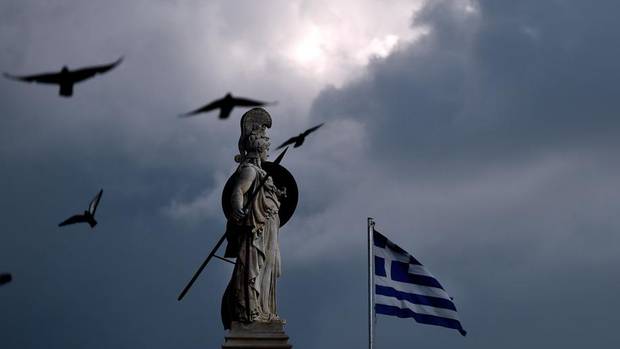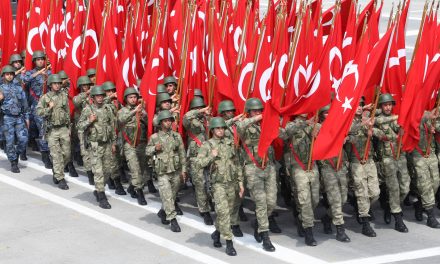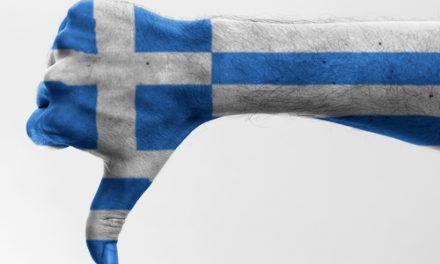By Michael Berkowitz**, -Huffington Post
Over the past few years, I’ve been troubled by Greece! I take it on faith and undergrad education that rich in culture Greece is where democracy began and took root. . . if you don’t count slaves or women.
But more importantly for our purposes, Greece is the keystone upon which my pension, your 401ks and our stock market precariously rests. As we are warned by the economic commentators, as Greece goes so go Portugal, Italy and Spain. At least that’s what I hear on Bloomberg!
Because of the importance of these questions, I scheduled a trip to Greece. I was sure that if I could see first hand what was going on, I’d be better able to exercise my Greek given democratic rights to protect my economic well being. My budget depended on it. At least that was my Platonic conception! If all else failed, I could always visit the Oracle of Delphi.
Of course, American concern with Greece these days seems based a little less on the quality of its democracy or attractions. We are more magnanimously interested in Greek economic health.
For years we have been hearing about Greece’s fiscal ill health. The problems grew out of the world financial crisis of 2007 through 2009. Greek national debt, ill advised reliance on credit default swaps and structural weakness resulted in loss of confidence particularly among the lending classes.
The principal European Union partners – led by Germany – demanded and secured what they characterized as “reforms.” They included heavy tax increases, cuts in spending, slashed worker pensions, lower salaries and loss of jobs.
But austerity measures have not had success in reviving sick economies. So it was no surprise that these measures almost killed the patient. The economy killing measures were made the conditions by which Greece would receive economic assistance. But they demoralized the population and destabilized succeeding governments. National government leadership toggled between the major parties, the Center Right (New Democracy) and the Center Left (PASOK). Large segments of the workforce saw their family savings, jobs and pensions evaporate. They took to the streets in strikes and civil disobedience.
For quite some time, I had heard about violent unrest. Friends had warned against visiting Greece under such conditions. Media was filled with stories of the dangers of encountering angry Greeks hostile to foreigners. Fox News and Fox Business News focused on disruption more than issues, the scuffles with police and individual anger.
It was even suggested in mainstream media that perhaps the country could not stand. But what better time to see how the foundation of democracy responded to crisis?
Here is what I found in two weeks of travel through Greece, from Athens to the countryside, though not so much in the more touristic islands:
There were ample signs of disaffection. Most notably, garbage workers were engaged in a protracted strike to save jobs, pensions and wages. In fact, uncollected garbage was piled high in city streets and outlying areas. Temperatures soared to 114 degrees stoking fears that disease would flow from the mountains of refuse. Coverage condemned workers. The New York Times (NYT, Thursday, 6/29) extensively quoted a 21 year old student, Andreas Morkatos, who admitted that the unionists made him sick.
But street interviews told a different story. Ordinary people showed strong support for the predicament of the garbage workers and by extension the larger citizenry who were held hostage by the conditions of the International Monetary Fund and World Bank which insisted upon diverting most Greek assistance toward debt service. Garbage Collectors Union head Nikos Trakas seemed largely correct when he stated that “the people are on our side.”
Citizens differed somewhat on blame, attitudes, allegiances and solutions. But through it all, there was a surprising serenity and sense of solidarity. This three thousand year old civilization that had been through wars and invasions was creative and resilient. Almost everyone that I spoke with knew a solution would be found. Commonality outweighed complaint. Citizenry seemed vested in the outcome.
Even the spirited demonstrations before the Parliament building, which I attended, were surprisingly non-violent. There was the obligatory tear gas. But no injuries, nor even arrests!
As compromise for the strike was found, economic signs gave hint of improvement. The bond market was on the rise. Just perhaps democracy was winning the day.
**Former Senior Manager of San Francisco’s Planning Department, Planning Commissioner for the City of Berkeley, Land Use Consultant to the government of China, longtime film critic.



















